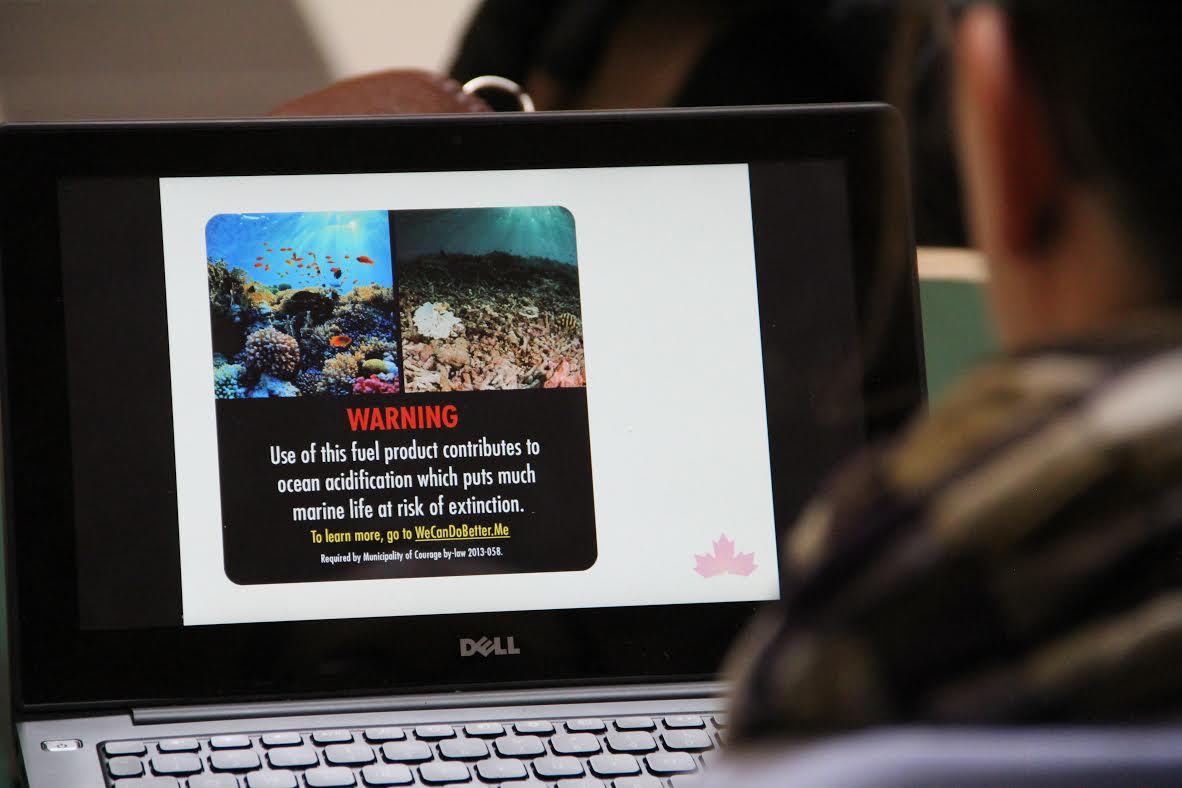A group of four St. Thomas University students lobbied the City of Fredericton earlier this month to force gas stations to warn customers about environmental risks of fossil fuel consumption with a warning label on every nozzle.

The effort is part of the national campaign “Our Horizon.” Local lobbyists Jeremy Trevors and Nicholas Decarie are confident Fredericton will be the first city to introduce a by-law even though other cities have stalled.
“I’m not too worried about it falling through,” said Decarie, a first-year student who is considering a major in international relations. “If it does fail it would have to be for a good reason… It’s a very reasonable thing to ask of the city.”
One potential warning label contains an image of a caribou, its fawn and the message: “Use of this fuel product contributes to climate change, which may put up to 30 per cent of species at a likely risk of extinction.”
Another shows two ocean-floor scenes, one vibrant and full of wildlife and the other with green-grey water and nearly deserted.
The warning labels look a lot like the ones that dominate cigarette packaging.
“I’m sure the gas stations are going to voice their concerns, but I don’t see them having a huge amount of impact on this,” said Decarie.
A number of Fredericton gas station managers could not speak on the issue, but at least two already have ads or messages on their pump nozzles.
Citing the tobacco industry’s fight against warning labels, Decarie added, “In the most extreme case, they take it to court. I have no doubt the courts would rule in favour of the city.”
In 2012, the High Court of Australia dismissed a tobacco industry challenge to the “plain packaging” law now in effect which sees logos and graphics removed from all cigarette packages. That year, Canadian tobacco companies challenged warnings that now take up 75 per cent of cigarette packs to no avail.
Presenters said the response from Fredericton’s public safety and environment committee at the Nov. 6 meeting was overwhelmingly positive. The committee voted unanimously for staff to research the matter further.
Trevors, a fourth-year journalism major, was also a part of the presentation. He too has high hopes the city will accept the initiative.
“I think Fredericton is a great place to start this,” he said. “Initially, before Canada gave up on the Kyoto protocol, Fredericton wanted to be the first city to reach (its goals). That sort of fizzled out, but this is an initiative – no, it’s not Kyoto, but it’s an initiative that we can maybe lead the way with for a change in this province.”
Regardless of the outcome, Decarie feels empowered by the work.
“It’s proven to me that individuals can make a change, and it’s not a stupid saying. It’s true.”
